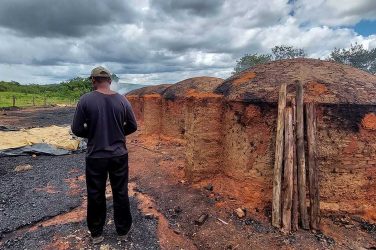Five years ago, a German-made Heckler & Koch (HG) G3 battle rifle, capable of shooting 600 rounds a minute, could be bought for about US$ 2,500 in Rio de Janeiro's (Brazil) black market.
Due to an increase of law enforcement, however, the same weapon cannot be purchased for less than US$ 15,000 nowadays. While the higher price doesn't mean a lot to the more powerful gangs, this situation is exacting a heavy toll on smaller groups.
In response to the new challenge and true to the maxim "my enemy's enemy is my friend", Rio's drug lords are helping their comrades in crime by leasing them the expensive weapons they cannot afford.
Â
The common enemy these days is not only the police but also the "milícias," (commandos) cops and former cops who get paid by businessmen and residents to protect businesses and neighborhoods against organized crime.Â
For about US$ 1500, smaller crime outlets can now impose respect like the biggies leasing submachine-guns capable of blowing up helicopters off the sky.
According to a report published Sunday, January 21, in Rio's daily O Globo, drug lords from more affluent favelas like Mangueira, Rocinha, Maré, Senador Camará, and Alemão are making some extra cash by renting weapons.
Traffickers are also organizing themselves into "co-ops" in order to increase their profits and protect their territories.
Their payment plans have made the business even more attractive. Those leasing the sophisticated guns can choose to pay using the loot they get in their criminal action, in case they are not able to advance the cash. The profit from drugs sold in points taken away from rival gangs can also be used as payment.
Besides drug dealers, kidnappers and bank robbers also have good credit. The bosses from the Alemão complex, for example, do lots of business with bank thieves and those working for ransom.
Â
Authorities found out about the new kind of business by wiretapping phones. The information revealed by O Globo, has been confirmed by Rio's Security Secretary, José Mariano Beltrame.
Beltrame is particularly worried after having discovered that traffickers from Mangueira are leasing their wares to gangs in Niterói, a city across from the Guanabara Bay where Rio is located. He also uncovered a plan concocted by two big favelas to invade a military unit and steal weapons.
In order to stop the police old enemies have forged alliances, the Globo has shown. That's what happened to drug lord Robson André da Silva, the Robinho Pinga, who let bygones be bygones and embraced his rival Márcio dos Santos Nepomuceno, also known as Marcinho VP, to create a joint front against the authorities.





